Fleurs du Mal Magazine


Or see the index
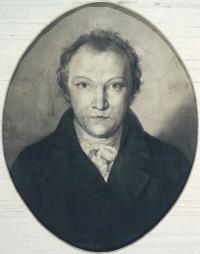
The Grey Monk
“I die, I die!” the Mother said,
“My children die for lack of bread.
What more has the merciless Tyrant said?”
The Monk sat down on the stony bed.
The blood red ran from the Grey Monk’s side,
His hands and feet were wounded wide,
His body bent, his arms and knees
Like to the roots of ancient trees.
His eye was dry; no tear could flow:
A hollow groan first spoke his woe.
He trembled and shudder’d upon the bed;
At length with a feeble cry he said:
“When God commanded this hand to write
In the studious hours of deep midnight,
He told me the writing I wrote should prove
The bane of all that on Earth I lov’d.
My Brother starv’d between two walls,
His Children’s cry my soul appalls;
I mock’d at the rack and griding chain,
My bent body mocks their torturing pain.
Thy father drew his sword in the North,
With his thousands strong he marched forth;
Thy Brother has arm’d himself in steel
To avenge the wrongs thy Children feel.
But vain the Sword and vain the Bow,
They never can work War’s overthrow.
The Hermit’s prayer and the Widow’s tear
Alone can free the World from fear.
For a Tear is an intellectual thing,
And a Sigh is the sword of an Angel King,
And the bitter groan of the Martyr’s woe
Is an arrow from the Almighty’s bow.
The hand of Vengeance found the bed
To which the Purple Tyrant fled;
The iron hand crush’d the Tyrant’s head
And became a Tyrant in his stead.”
William Blake
(1757 – 1827)
The Grey Monk
• fleursdumal.nl magazine
More in: Archive A-B, Archive A-B, Blake, William, Tales of Mystery & Imagination
Stichting Feest der Poëzie organiseert met Sociëteit “De Unie” Hilversum op donderdag 29 oktober 2020 in de serie Gooise dichters van het Feest der Poëzie een avond over Herman Gorter.
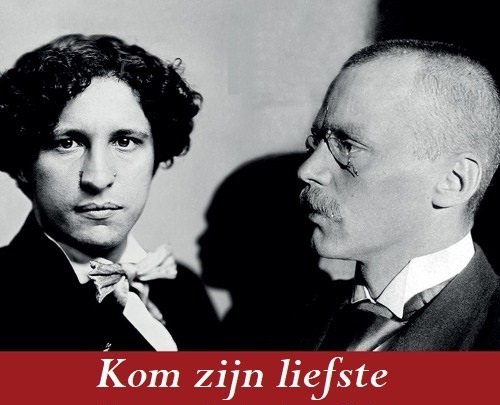
Herman Gorter, de dichter van ‘Mei’ (‘Een nieuwe lente en een nieuw geluid…’), woonde een aantal jaren aan de Nieuwe ‘s-Gravelandseweg 66 in Bussum, in een huis naar ontwerp van architect Berlage.
Voordrachtskunstenaar Simon Mulder en soundscape-artiesten Beggar Brahim (elektrische gitaar) en Jesse LaChiffre (klarinet) brengen nummers van de CD ‘Herman Gorter – Verzen 1890’, waarbij de gedichten uit de lyrische, experimentele, sensitivistische periode van classicus, dichter en socialist Herman Gorter, een unieke samenklank aangaan met Beggar Brahims klanklandschappen.
Klassiek muziekduo Marleen van Os en Daan van de Velde brengt bijzondere en nauwelijks uitgevoerde liederen op teksten van Gorter, bijgestaan door sopraan Heleen Oomen.
Stadsdichter Mieke van Zonneveld brengt de gedichten van Gorter die zij als motto’s in haar debuutbundel Leger gebruikte, en de daarbij behorende gedichten.
Verder bijzondere filmbeelden van Gorter van filminstituut Eye en de première van de videoclip ‘In de zwarte nacht’.
Sociëteit “De Unie” Hilversum
donderdag 29 oktober 2020
20:00 – 22:00 uur
s-Gravelandseweg 57
1217 EH Hilversum
Reserveringen worden verzorgd door ticketkantoor.nl
# Website Stichting Feest der Poëzie
• fleursdumal.nl magazine
More in: # Music Archive, #Editors Choice Archiv, Archive G-H, Archive G-H, Art & Literature News, AUDIO, CINEMA, RADIO & TV, Feest der Poëzie, Gorter, Herman
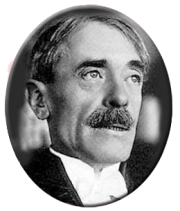
Vue
Si la plage planche, si
L’ombre sur l’œil s’use et pleure
Si l’azur est larme, ainsi
Au sel des dents pure affleure
La vierge fumée ou l’air
Que berce en soi puis expire
Vers l’eau debout d’une mer
Assoupie en son empire
Celle qui sans les ouïr
Si la lèvre au vent remue
Se joue à évanouir
Mille mots vains où se mue
Sous l’humide éclair de dents
Le très doux feu du dedans.
Paul Valéry
(1871-1945)
Vue
Poème
• fleursdumal.nl magazine
More in: Archive U-V, Archive U-V, Valéry, Paul
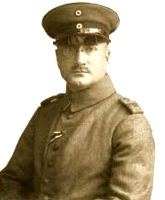
Abend
Zähnen
Plantschet streif das Blut des Himmels
Denken schicksalt
Tode zattern und verklatschen
Sterne dünsten
Scheine schwimmen
Wolken greifen fetz das Haar
Und
Weinen
Mein
Zergehn
Dir
In
Den
Schoß.
August Stramm
(1874-1915)
Abend
• fleursdumal.nl magazine
More in: Archive S-T, Archive S-T, Stramm, August, Stramm, August, WAR & PEACE
An elegiac and moving meditation on the ways in which we witness “bodies” of grief and healing.
 Poems and photographs collide in this intimate collection, challenging the invisible, indefinable ways mourning takes up residence in a body, both before and after life-altering loss.
Poems and photographs collide in this intimate collection, challenging the invisible, indefinable ways mourning takes up residence in a body, both before and after life-altering loss.
In radiant poems—set against the evocative and desperate backdrop of contemporary events, pop culture, and politics—Rachel Eliza Griffiths reckons with her mother’s death, aging, authority, art, black womanhood, memory, and the American imagination. The poems take shape in the space where public and private mourning converge, finding there magic and music alongside brutality and trauma. Griffiths braids a moving narrative of identity and its possibilities for rebirth through image and through loss.
A photographer as well as a poet, Griffiths accompanies the fierce rhythm of her verses with a series of ghostly, imaginative self-portraits, blurring the body’s internal wilderness with landscapes alive with beauty and terror. The collision of text and imagery offers an associative autobiography, in which narratives of language, absence, and presence are at once saved, revised, and often erased. Seeing the Body dismantles personal and public masks of silence and self-destruction to visualize and celebrate the imperfect freedom of radical self-love.
Rachel Eliza Griffiths is the author of four previous collections of poetry, including Lighting the Shadow. Her literary and visual work has appeared in The New Yorker, the New York Times, Paris Review, and many other publications. She lives in New York City.
Seeing the Body
Poems
Rachel Eliza Giffiths
Title Seeing the Body
Subtitle Poems
Author Rachel Eliza Giffiths
Publisher W. W. Norton & Company
Title First Published 09 June 2020
Format Hardcover
ISBN-10 1324005661
ISBN-13 9781324005667
Available for Sale 06/09/2020!
Price $26.95
# more poetry
Rachel Eliza Giffiths
Seeing the Body
• fleursdumal.nl magazine
More in: #Editors Choice Archiv, - Book News, Archive G-H, Archive G-H
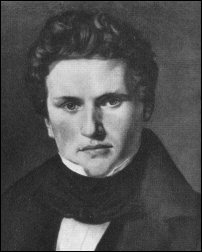
Der Kranke
Zitternd auf der Berge Säume
Fällt der Sonne letzter Strahl,
Eingewiegt in düstre Träume
Blickt der Kranke in das Tal,
Sieht der Wolken schnelles Jagen
Durch das trübe Dämmerlicht —
Ach, des Busens stille Klagen
Tragen ihn zur Heimat nicht!
Und mit glänzendem Gefieder
Zog die Schwalbe durch die Luft,
Nach der Heimat zog sie wieder,
Wo ein milder Himmel ruft;
Und er hört ihr fröhlich Singen,
Sehnsucht füllt des Armen Blick,
Ach, er sah sie auf sich schwingen,
Und sein Kummer bleibt zurück.
Schöner Fluß mit blauem Spiegel,
Hörst du seine Klagen nicht?
Sag’ es seiner Heimat Hügel,
Daß des Kranken Busen bricht.
Aber kalt rauscht er vom Strande
Und entrollt ins stille Tal,
Schweiget in der Heimat Lande
Von des Kranken stiller Qual.
Und der Arme stützt die Hände
An das müde, trübe Haupt;
Eins ist noch, wohin sich wende
Der, dem aller Trost geraubt;
Schlägt das blaue Auge wieder
Mutig auf zum Horizont,
Immer stieg ja Trost hernieder
Dorther, wo die Liebe wohnt.
Und es netzt die blassen Wangen
Heil’ger Sehnsucht stiller Quell,
Und es schweigt das Erdverlangen,
Und das Auge wird ihm hell:
Nach der ew’gen Heimat Lande
Strebt sein Sehnen kühn hinauf,
Sehnsucht sprengt der Erde Bande,
Psyche schwingt zum Licht sich auf.
Wilhelm Hauff
(1802 – 1827)
Der Kranke, Gedicht
• fleursdumal.nl magazine
More in: Archive G-H, Archive G-H, Hauff, Hauff, Wilhelm, Tales of Mystery & Imagination
Jan Cremer (1940) schildert zijn avontuurlijke leven al zo’n 65 jaar met woorden en penselen.
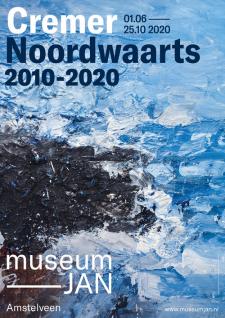 Vanaf 1 juni wordt een grote selectie van monumentale zeegezichten die Cremer de afgelopen tien jaar heeft geschilderd, tentoongesteld in Museum JAN. Nooit eerder werden deze werken samengebracht in een tentoonstelling. “Cremer Noordwaarts 2010-2020” combineert deze recente doeken met zijn foto’s van reizen naar o.a. Mongolië en Groenland.
Vanaf 1 juni wordt een grote selectie van monumentale zeegezichten die Cremer de afgelopen tien jaar heeft geschilderd, tentoongesteld in Museum JAN. Nooit eerder werden deze werken samengebracht in een tentoonstelling. “Cremer Noordwaarts 2010-2020” combineert deze recente doeken met zijn foto’s van reizen naar o.a. Mongolië en Groenland.
In zijn atelier in Umbrië legt Jan Cremer herinneringen vast aan de tijd dat hij de wereldzeeën naar het noorden bevoer. Cremer:
“Ik heb altijd naar de zee verlangd. Zelfs als kind. Ik zeilde en wilde weten wat er achter de horizon lag. Ik hou het meest van de storm. “
De reizen maakten een grote indruk op hem. Naast het fysiek zware werk, de schoonheid van de uitgestrekte watervlakte en de vrijheid die hij voelde, was er altijd de dreiging van het geweld van de natuur aan boord. Dit is te zien in zijn metershoge schilderijen. Meestal is er een heldere zee en een lucht daarboven, maar soms is er geen horizon, geen scheidslijn, zodat de doeken bijna abstract worden. Zelden is er een persoon of teken van menselijk leven op deze zeegezichten te zien.
Cremer maakt zijn olieverf zelf en brengt deze, net als in zijn vroege jaren, voor een groot deel aan op het linnen of de jute met bijvoorbeeld penselen, spatels en zijn handen. Zo beeldhouwt hij zijn golven en schuimkoppen tot driedimensionale vormen, die beweging en diepte suggereren. Als kijker word je meegezogen in de kolkende watermassa, Cremers zeegezichten zijn nooit rimpelig of glad, ze zijn woest en onrustig als de schilder en zijn leven zelf.
Museum JAN toont in de tentoonstelling ‘Cremer – Noordwaarts 2010-2020’ een ruime selectie monumentale zeegezichten die Jan Cremer in het afgelopen decennium schilderde.
“Ik sodemieter verf op een doek. Ik druip, spat, sla en schop. Ik vecht met verf. Soms win ik.”
Bij de tentoonstelling verschijnt een catalogus uitgegeven door Uitgeverij Waanders en de Kunst.
Cremer – Noordwaarts (2010-2020)
Zee-gezichten
Door Marieke Uildriks, Daan van Lent, Ralph Keuning
 Sinds ongeveer 2005 schildert Jan Cremer zeegezichten. Als jonge matroos bevoer hij verschillende zeeën in het noorden van Europa. Die reizen maakten enorme indruk op hem.
Sinds ongeveer 2005 schildert Jan Cremer zeegezichten. Als jonge matroos bevoer hij verschillende zeeën in het noorden van Europa. Die reizen maakten enorme indruk op hem.
Behalve het fysiek zware werk en de schoonheid van de uitgestrekte watervlakten, de vrijheid die hij voelde, was er aan boord ook altijd de dreiging van het geweld van de natuur. Dat is terug te zien in zijn onstuimige doeken. Cremer: ‘Ik heb altijd naar de zee verlangd. Als kind al. Ik heb gevaren en wilde weten wat er achter de horizon zat.’ Als kijker wordt je in de kolkende massa water gezogen, Cremers zeegezichten zijn nooit kabbelend of spiegelglad, ze zijn woest en onrustig als de schilder en zijn leven zelf.
24 x 29 vm
96 pagina’s
63 kleurillustraties
Paperback
Nederlands
ISBN 9789462622999
Inclusief tijdlijn Jan Cremer en tentoonstellingsoverzicht.
€ 19,95
Tentoonstelling Jan Cremer
t/m 25 oktober 2020
Museum JAN, Amstelveen
Museum JAN is een museum in Amstelveen voor beeldende kunst en blinkt uit in glaskunst. De eigen collectie bestaat uit unieke glasobjecten, bijeengebracht door de oprichter Jan van der Togt. Hij verzamelde internationale topkunst en zocht naar wat hem esthetisch boeide. Naast deze karaktervolle collectie biedt Museum JAN een breed en aansprekend tentoonstellingsprogramma.
Museum JAN
Dorpsstraat 50
1182 JE Amstelveen
info@museumjan.nl
+31 (0)20 641 5754
# Website Museum JAN: https://nl.museumjan.nl/
• fleursdumal.nl magazine
More in: Archive C-D, Art & Literature News, Expressionisme, Jan Cremer, Jan Cremer, Natural history

Belijdenis
Je moet niets verbranden. Zelfs geen mieren
als je denkt dat die een oprukkend leger zijn.
Dat heb ik wel gebiecht ja, dat heb ik toen wel
gebiecht. Ego te absolvo a peccatis tuis in nomine
Patris et Filii et Spiritus Sancti. Amen. Amen.
Ach, die 10 Ave Maria’s en 5 Paternosters
waarmee ik mijn zieltje destijds schoon waste.
Het blonk daarna weer als een ansjovisbuikje.
Nooit echt heb ik me onderworpen aan de sluier
van de dwang. Onrustige biechtelingen waren
er genoeg hoor, bang mokkend in hun eigen
schaduw. Vierduizend mijl dik waren voor hen
de muren van de hel. Zij leerden de beschroomde
tere tinten van berouw nooit kennen. Bleven
verhard in wrede gedachten, grauw als gummi.
Bert Bevers
Eerder verschenen bij Digther, Diksmuide, november 2013
Bert Bevers is a poet and writer who lives and works in Antwerp (Be)
• fleursdumal.nl magazine
More in: Archive A-B, Archive A-B, Bevers, Bert
Flèche (the French word for ‘arrow’) is an offensive technique commonly used in fencing, a sport of Mary Jean Chan’s young adult years, when she competed locally and internationally for her home city, Hong Kong.
This cross-linguistic pun presents the queer, non-white body as both vulnerable (‘flesh’) and weaponised (‘flèche’), and evokes the difficulties of reconciling one’s need for safety alongside the desire to shed one’s protective armour in order to fully embrace the world.
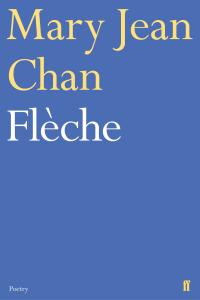 Central to the collection is the figure of the poet’s mother, whose fragmented memories of political turmoil in twentieth-century China are sensitively threaded through the book in an eight-part poetic sequence, combined with recollections from Chan’s childhood.
Central to the collection is the figure of the poet’s mother, whose fragmented memories of political turmoil in twentieth-century China are sensitively threaded through the book in an eight-part poetic sequence, combined with recollections from Chan’s childhood.
As complex themes of multilingualism, queerness, psychoanalysis and cultural history emerge, so too does a richly imagined personal, maternal and national biography.
The result is a series of poems that feel urgent and true, dazzling and devastating by turns.
Mary Jean Chan grew up in Hong Kong and studied at Swarthmore College, the University of Oxford and Royal Holloway, University of London. Her debut pamphlet, A Hurry of English, was selected as the 2018 Poetry Book Society Summer Pamphlet Choice. In 2017, Chan’s poem ‘//’ was shortlisted for the 2017 Forward Prize for Best Single Poem. She is a Ledbury Poetry Critic, editor of Oxford Poetry, advisory board member at the Poetry Translation Centre and member of the Folio Prize Academy. She is a Lecturer in Creative Writing (Poetry) at Oxford Brookes University and lives in London.
Flèche
Mary Jean Chan
Publisher: Faber & Faber
Series: Faber Poetry
Paperback
88 pages
Language: English
ISBN-10: 0571348041
ISBN-13: 978-0571348046
March 31, 2020
£10.99
# new poetry
Mary Jean Chan
Flèche
• fleursdumal.nl magazine
More in: #Editors Choice Archiv, - Book News, Archive C-D, Archive C-D
The poet laureate of Punk holds forth in inimitable fashion about his sprawling, idiosyncratic career and the stars and artists with whom he has worked and been championed by. Brimming with his distinctive dry humour and wordplay, I Wanna Be Yours is a beautifully rambling memoir for lifelong fans and new converts alike.
This is a memoir as wry, funny, moving and vivid as only John Cooper Clarke could deliver. Inimitable and iconic, his book will be a joy for both lifelong fans and for a whole new generation.
 John Cooper Clarke is a phenomenon: Poet Laureate of Punk, rock star, fashion icon, TV and radio presenter, social and cultural commentator, reluctant national treasure. At 5 feet 11 inches (116lb, 32in chest, 27in waist), in trademark suit jacket, skin-tight drainpipes and dark glasses, with jet-black back-combed hair and mouth full of gold teeth, he is instantly recognizable. As a writer his voice is equally unmistakable and his inimitable dry Salford drawl shines through the prose.
John Cooper Clarke is a phenomenon: Poet Laureate of Punk, rock star, fashion icon, TV and radio presenter, social and cultural commentator, reluctant national treasure. At 5 feet 11 inches (116lb, 32in chest, 27in waist), in trademark suit jacket, skin-tight drainpipes and dark glasses, with jet-black back-combed hair and mouth full of gold teeth, he is instantly recognizable. As a writer his voice is equally unmistakable and his inimitable dry Salford drawl shines through the prose.
I Wanna Be Yours covers an extraordinary life, filled with remarkable personalities: from Nico to Chuck Berry, from all the great punks to Bernard Manning, and on to more recent fans and collaborators Alex Turner and Plan B – who have championed his work. Interspersed with stories of his rock and roll and performing career, John also reveals his boggling encyclopaedic knowledge of twentieth-century popular culture, his private passions and guilty pleasures: from Baudelaire, Pam Ayres and Rimbaud to football to Coronation Street, comprising horse racing and gambling, politics and jokes – and much more.
‘John Cooper Clarke is one of Britain’s outstanding poets. His anarchic punk poetry has thrilled people for decades and his no nonsense approach to his work and life in general has appealed to many people including myself for many years. Long may his slender frame and spiky top produce words and deeds that keep us on our toes and alive to the wonders of the world.’ – Sir Paul McCartney
I Wanna Be Yours (Hardback)
John Cooper Clarke (author)
Publisher: Pan Macmillan
ISBN: 9781509896103
Number of pages: 320
Hardback
Coming soon
01/10/2020
£20.00
# new books
John Cooper Clarke
I Wanna Be Yours
• fleursdumal.nl magazine
More in: # Punk poetry, #Archive A-Z Sound Poetry, *Concrete + Visual Poetry A-E, Archive C-D, Archive C-D
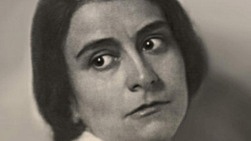
Als der blaue Reiter war gefallen …
Griffen unsere Hände sich wie Ringe;-
Küßten uns wie Brüder auf den Mund.
Harfen wurden unsere Augen,
Als sie weinten: Himmlisches Konzert.
Nun sind unsere Herzen Waisenengel.
Seine tiefgekränkte Gottheit
Ist erloschen in dem Bilde: Tierschicksale.
Else Lasker-Schüler
(1869 – 1945)
Als der blaue Reiter war gefallen . . .
(Nachruf von Else Lasker-Schüler an den 1916
im 1.Weltkrieg gefallenen Franz Marc)
• fleursdumal.nl magazine
More in: *War Poetry Archive, Archive K-L, Archive K-L, Lasker-Schüler, Else

Independent Bookstore Day
saturday august 29, 2020
• more on website indiebookstoreday
• https://www.indiebookstoreday.com/
• fleursdumal.nl magazine
More in: - Book Lovers, - Book News, - Bookstores, Art & Literature News, AUDIO, CINEMA, RADIO & TV, FDM in New York, The Art of Reading
Thank you for reading Fleurs du Mal - magazine for art & literature